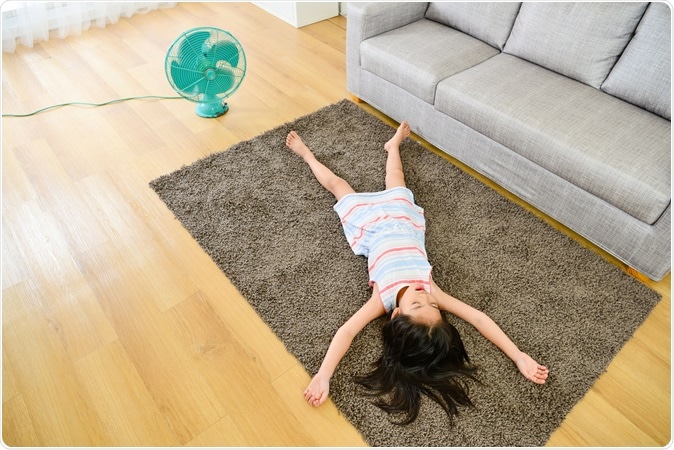Britain is facing a heat wave this week with maximum temperatures hovering around 34C. This heat may make sleeping comfortably at night difficult. To combat the heat many people turn on their fans to cool down as they sleep. Mark Reddick, wrote for Sleep Advisor and explained how the use of the fans at night can have a negative impact on health.

Image Credit: PR Image Factory / Shutterstock
The experts say that the fan works to circulate the air within a room. In turn it can also cause the movement of the dust particles and other allergens. These allergens can cause irritation and may lead to several degrees of allergies in the susceptible individuals. The constant air over the exposed skin can also lead to drying of the skin. Further sleeping with the fan on all night may also cause soreness in the muscles. This occurs mainly because the concentrated air blasting on different regions of the body can cause tensing of the muscles and lead to their cramping.
Researchers have said that keeping one’s skin hydrated and moisturized using creams and lotions at night can help prevent the drying. They explain that most people may wake up with a stiff neck in the morning due to continuous fan use the previous night.
So does this mean that fans should not be used? Researchers say that fans may be used in closed rooms, in which case they can keep the room moderately cool and keep the air circulating. There is also little risk of the fan bringing in dust and other air borne allergens. Fans can also be a great source of white noise. In places where there is a lot of ambient noise from traffic etc. or people who sleep with a snoring partner, fans can provide with a white noise that can help sleep.
The experts believe the real reason why fans should be avoided is due to their potential to cause asthma, dry eyes, eye allergies, hay fever and other allergies. In vulnerable individuals fans can trigger an attack of asthma. Pollen, dust and other air borne particles tend to keep circulating in rooms with fans.
The NHS advises that all individuals should keep their windows and curtains closed and preferably use light-coloured curtains and put shades or reflective material on the outsides of the windows. For more comfortable sleep, cool showers before bed and drinking cold water might help. Experts advise against alcohol or cold caffeine rich preparations as they can disrupt sleep. Wearing loose cotton clothing and sleeping in a cool dark room can also help.